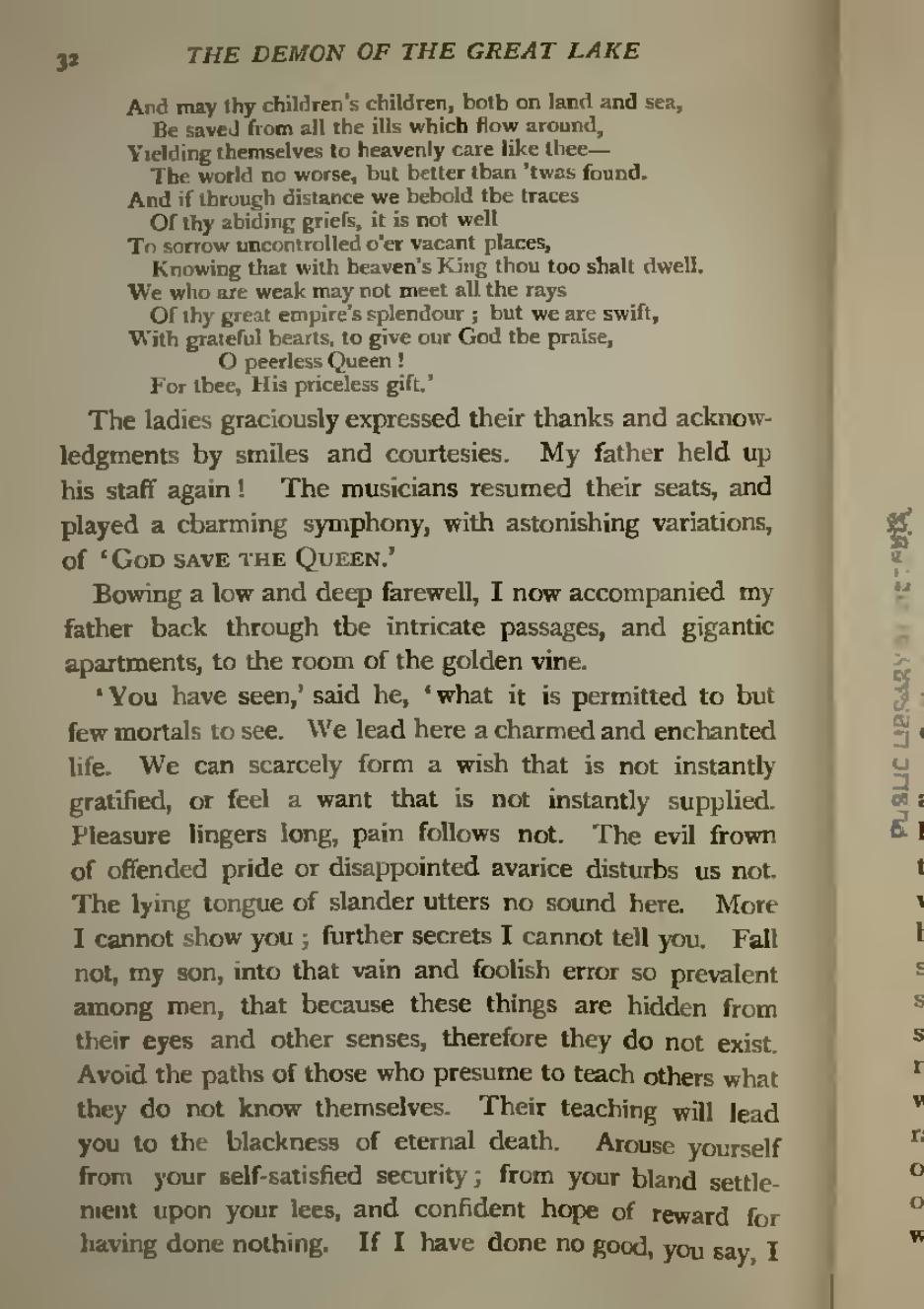And may thy children's children, both on land and sea,
Be saved from all the ills which flow around,
Yielding themselves to heavenly care like thee—
The world no worse, but better than 'twas found.
And if through distance we behold the traces
Of thy abiding griefs, it is not well
To sorrow uncontrolled o'er vacant places,
Knowing that with heaven's King thou too shall dwell.
We who are weak may not meet all the rays
Of thy great empire's splendour; but we are swift,
With grateful hearts, to give our God the praise,
O peerless Queen!
For thee, His priceless gift.'
The ladies graciously expressed their thanks and acknowledgments by smiles and courtesies. My father held up his staff again! The musicians resumed their seats, and played a charming symphony, with astonishing variations, of 'God save the Queen.'
Bowing a low and deep farewell, I now accompanied my father back through the intricate passages, and gigantic apartments, to the room of the golden vine.
'You have seen,' said he, 'what it is permitted to but few mortals to see. We lead here a charmed and enchanted life. We can scarcely form a wish that is not instantly gratified, or feel a want that is not instantly supplied. Pleasure lingers long, pain follows not. The evil frown of offended pride or disappointed avarice disturbs us not. The lying tongue of slander utters no sound here. More I cannot show you; further secrets I cannot tell you. Fall not, my son, into that vain and foolish error so prevalent among men, that because these things are hidden from their eyes and other senses, therefore they do not exist. Avoid the paths of those who presume to teach others what they do not know themselves. Their teaching will lead you to the blackness of eternal death. Arouse yourself from your self-satisfied security; from your bland settlement upon your lees, and confident hope of reward for having done nothing. If I have done no good, you say I
